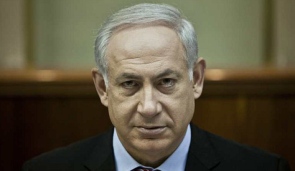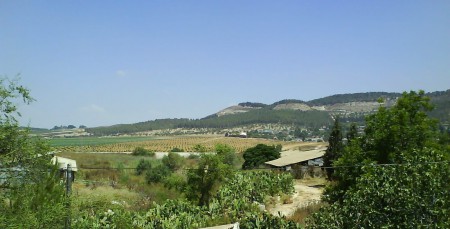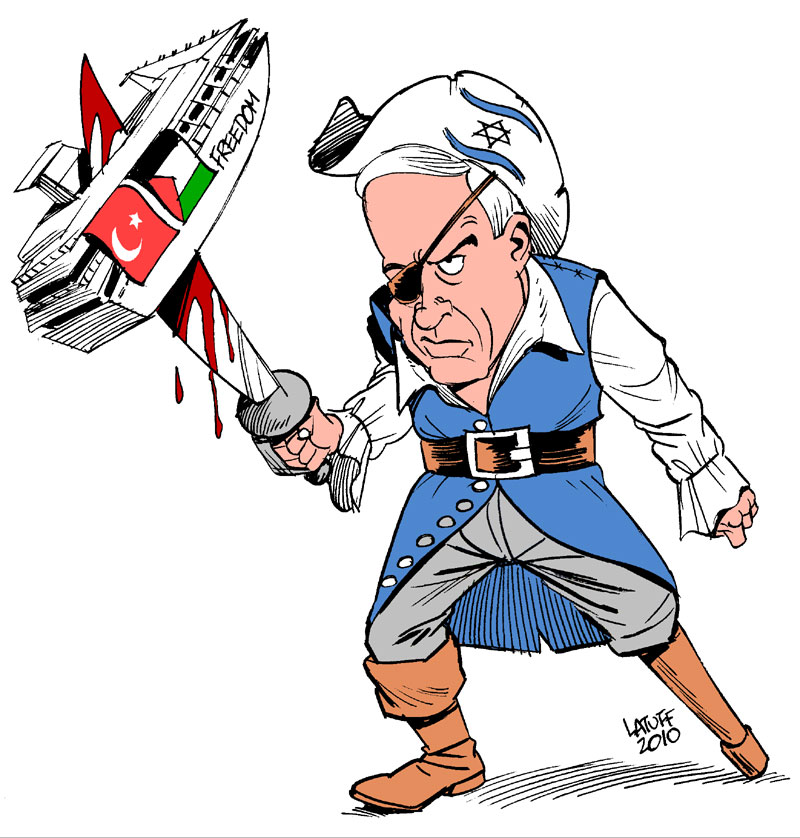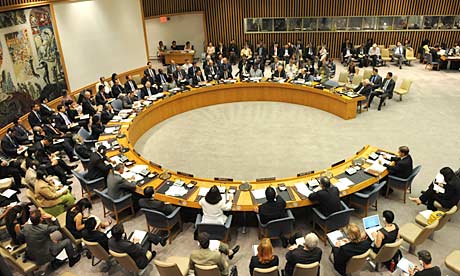
EDITOR: BDS is taking a hold and dictating the new agenda
Not a day passes without some major news on the BDS issue, from all parts of the globe. This rising movement, with supporters in most countries, and with growing effect, is now assisting the isolation of the Israeli regime of militarised, brutal colonial settlement. While Israel’s universities and colleges do all they can to support the coniued occupoation, there are many academics who are increasingly voicing their opposition to the regime and its war crimes. This struggle is likely to intensify, as the regime is moving to stop all crticism by using the legal machinery to silence academics. This vert act is a proof on the increasing efficacy of the BDS campaign.
Israeli academics hit back over bid to pass law that would criminalise them: The Observer
Backlash over threat to outlaw supporters of boycott movement aimed at ending the continued occupation of the West Bank
An academic backlash has erupted in Israel over proposed new laws, backed by the government of Binyamin Netanyahu, to criminalise a handful of Israeli professors who openly support a campaign against the continuing occupation of the West Bank.
The Boycott, Divestment and Sanctions (BDS) campaign against Israel has gained rapid international support since Israeli troops stormed a Gaza-bound flotilla of aid ships in May, killing nine activists. Israeli attention has focused on the small number of activists, particularly in the country’s universities, who have openly supported an academic boycott of Israeli institutions.
A protest petition has been signed by 500 academics, including two former education ministers, following recent comments by Israel’s education minister, Gideon Saar, that the government intends to take action against the boycott’s supporters. A proposed bill introduced into the Israeli parliament – the Knesset – would outlaw boycotts and penalise their supporters. Individuals who initiated, encouraged or provided support or information for any boycott or divestment action would be made to pay damages to the companies affected. Foreign nationals involved in boycott activity would be banned from entering Israel for 10 years, and any “foreign state entity” engaged in such activity would be liable to pay damages.
Saar last week described the petition as hysterical and an attempt to silence contrary opinions. While the vast majority of the signatories do not support an academic boycott of Israel, they have joined forces over what they regard as the latest assault on freedom of expression in Israel. The petition states: “We have different and varied opinions about solving the difficult problems facing Israel, but there is one thing we are agreed on – freedom of expression and academic freedom are the very lifeblood of the academic system.”
Daniel Gutwein, a history professor at Haifa University who is one of the signatories, described the minister’s intervention as an attempt “to make Israeli academia docile, frightened and silent”.
Although the BDS campaign – in various forms – has been running for over half a decade, it has become an increasingly fraught issue inside Israel in the past year since a small number of academics publicly declared support for a boycott, including Neve Gordon, author of Israel’s Occupation and a former paratrooper who was badly injured while serving with the Israeli Defence Force.
Speaking to the Observer last week, Gordon said that many Israelis saw support for the BDS as “crossing a red line”. Adding that he had received recent death threats, he said: “I am worried about what is happening to the space for debate in Israel. I find that there is a proto-fascist mindset developing. One of the slogans you hear a lot now is no citizenship without loyalty. It is an inversion of the republican idea that the state should be loyal to the citizen.”
Israeli campaigners believe the Gaza flotilla incident represents a tipping point in raising support for boycotts. Musicians including Elvis Costello, Gil Scott Heron and the Pixies have cancelled shows in Israel. Hollywood actors also snubbed Jerusalem’s international film festival and internationally acclaimed writers have supported the BDS movement, which is gaining support in dozens of countries.
“It’s a different world to what it was even a month ago,” says Kobi Snitz, member of an Israeli BDS group. “Suddenly, all sorts of people are supporting it – people that you wouldn’t expect.”
What is most interesting, however, has been the impact in Israel itself. Israeli journalist and blogger Noam Sheizaf wrote recently that such actions are now forcing Israelis “to think about the political issues and about their consequences… For a country in a constant state of denial regarding the occupation, this is no small thing.” Sheizaf does not promote the boycott, but says: “I will gladly return concert tickets if that is the price for making Israelis understand that the occupation cannot go on.”
Adi Oz, culture editor on the Tel Aviv weekly Ha’ir, appeared on Israeli national radio explaining her support for recent boycott activity. “When the Pixies cancelled their concert here I was disappointed,” she says. “But I was not critical of the Pixies, I was critical of our government, because they are responsible for Israel’s isolation.” She adds that, post-flotilla, the cultural boycott is “something that everyone has a stand on – and some people are realising that they are in favour of it, without having thought about it before.” There has also been a spate of boycott-related discussion in the financial press. The daily business newspaper Calcalist ran an uncritical profile of the Israeli campaigners behind Who Profits, an online database of Israeli and international companies involved in the occupation of the West Bank.
The project’s co-ordinator, Dalit Baum, of the Coalition of Women for Peace, says: “Every day there is an article about this issue in the Israeli media, which creates a discussion about the economy of the occupation and raises the fact that there’s a problem.”
Lebanon UN force urges co-operation with peacekeepers: BBC
The head of the UN peacekeeping force in southern Lebanon has appealed for calm, following recent incidents in which villagers attacked soldiers.
Locals were angered by what they saw as plans by the UN force to undermine the Hezbollah militant group in the event of a renewed conflict with Israel.
The area is a Hezbollah stronghold.
In an open letter to residents, Maj Gen Alberto Asarta Cuevas said the best way to deal with any concerns was through dialogue, not by beating peacekeepers.
In the latest of the clashes, villagers on Saturday disarmed a French patrol of UN peacekeepers in the village of Tuline and attacked them with sticks, rocks and eggs before the army intervened.
Residents have complained that Unifil has stepped up its patrols in southern Lebanon, which has been under the de facto control of Hezbollah since the withdrawal of Israeli forces in 2000.
Open letter
“As you all know, some recent incidents have cast a shadow on the positive environment in which Unifil peacekeepers have been working, in close co-ordination with the Lebanese army, for your safety and security,” Maj Gen Cuevas said in a rare open letter released on Thursday.
The UN commander said Unifil respected the privacy and property of the villagers in the south, and that problems should be resolved by discussion “not by obstructing the work of the peacekeepers or by beating them”.
Tensions in southern Lebanon have increased after recent Israeli claims that weapons were flowing in to Hezbollah fighters.
On Wednesday, the Israeli military published an aerial photograph purporting to show Hezbollah weapons caches in the southern Lebanese village of al-Khiam.
Following the recent clashes, Hezbollah – which fought a devastating 2006 war with Israel – urged the peacekeepers to stick to their mandate.
“Unifil should always carry out its role… in a way so as not to arouse mistrust and worry of citizens as was the case during the latest exercises,” Hezbollah’s number two, Naim Qassem, said in a newspaper interview.
The UN Security Council is due to meet later on Friday, at France’s request, to discuss the confrontations and reaffirm the peacekeeping force’s right to free movement.
The UN force was originally formed in 1978 after Israeli troops entered southern Lebanon and began a 22-year occupation.
Security Council Resolution 1701, that ended the 2006 war, expanded the mandate of Unifil and paved the way for the Lebanese army to deploy in the sensitive border area.
Racism in the name of halakha: Haaretz Editorial
Rabbis are exploiting fears and inflaming emotions under pretense of enforcing Jewish religious law.
The letter circulated by three rabbis in south Tel Aviv in which they direct residents not to rent their apartments to migrants and refugees trying to settle in the city makes a pretense of concern for the welfare of the residents and compassion for asylum seekers. But it hardly manages to conceal the blatant racism lurking between the lines.
The rabbis warn residents not to give access to their homes to “illegal workers,” but it is clear that maintaining the rule of law is not their concern, inasmuch as they are not demanding similar treatment for Israeli citizens. As for the argument that the presence of the foreigners is causing a rise in crime and intermarriage, the rabbis are even taking the law into their own hands and bypassing city hall and the police.
The weaker population groups living in south Tel Aviv find themselves pressed to take in refugees, migrant workers and collaborators. This situation creates troubling friction that aggravates the residents’ sense of unfair treatment and alienation. It’s hard to ask the inhabitants of these deprived neighborhoods to take in the outcasts of the world with open arms without feeling threatened. In this complex reality, the role of religious and secular leaders is to try to bridge the gaps and find creative ways of living together.
The rabbis who signed the letter are not civil servants. However, the public is greatly influenced by their opinions. The Tel Aviv municipality has expended more than a little effort in taking care of migrant workers and could have used the rabbis’ help in making contact with the migrants and their leaders and attempting to integrate the newcomers into the neighborhood in the ways that have been done in many other countries. The rabbis, however, prefer to exploit residents’ fears and inflame emotions in the name of halakha, Jewish religious law.
Over the weekend, a courageous leader, Rabbi Yehuda Amital, who founded the Meimad political movement, passed away. His party carried the banner of tolerance, humanism and the search for peace in the name of religious faith, and though the members of his movement were always a minority, they provided an important alternative to ultra-Orthodox-nationalist radicalization.
In recent years, Rabbi Amital’s students and followers have fallen silent, and the status of rabbis such as those who wrote the letter about the migrants has grown stronger. It can be hoped that the municipality will understand the damage they are doing and will publicly disassociate the city from their questionable activities and instead provide the option of an alternative, one of coexistence for all of the city’s residents – both temporary and permanent – a coexistence free of fear and racism.
A peace crime: Haaretz
What more can Assad say that he hasn’t already? How long must he knock in vain on Israel’s locked door?
By Gideon Levy
It couldn’t have been spelled out more explicitly, clearly and emphatically. Read and judge for yourselves: “Our position is clear: When Israel returns the entire Golan Heights, of course we will sign a peace agreement with it …. What’s the point of peace if the embassy is surrounded by security, if there is no trade and tourism between the two countries? That’s not peace. That’s a permanent cease-fire agreement. This is what I say to whoever comes to us to talk about the Syrian track: We are interested in a comprehensive peace, i.e., normal relations.”
Who said this to whom? Syrian President Bashar Assad to the Lebanese newspaper As-Safir last week. These astounding things were said to Arab, not Western ears, and they went virtually unnoticed here. Can you believe it?
What more can Assad say that he hasn’t already? How many more times does he have to declare his peaceful intentions before someone wakes up here? How long must he knock in vain on Israel’s locked door? And if that were not enough, he also called on Turkey to work to calm the crisis with Israel so it can mediate between Israel and Syria.
Assad’s words should have been headline news last week and in the coming weeks. Anwar Sadat said less before he came to Israel. In those days we were excited by his words, today we brazenly disregard such statements. This leads to only one conclusion: Israel does not want peace with Syria. Period. It prefers the Golan over peace with one of its biggest and most dangerous enemies. It prefers real estate, bed and breakfasts, mineral water, trendy wine and a few thousand settlers over a strategic change in its status.
Just imagine what would happen if we emerged from the ruins of our international status to sign a peace agreement with Syria – how the international climate regarding us would suddenly change, how the “axis of evil” would crack and Iran’s strongholds weaken, how Hezbollah would get a black eye, more than in all the Lebanon wars. And maybe even Gilad Shalit, held by the Damascus-based Hamas, would be freed. Sound too good to be true? Maybe, but Israel is not even trying. A prime minister who ignores this chance is no less than a peace criminal.
Instead of the Shalit march that has just ended, a different march should have set out this week, one more massive and determined, calling on the Israeli government, the peace refuser, to do something. Hoarse shouts should have gone up: Peace with Syria now. But this march will not go forward this week. Apparently it will never happen. Singer-songwriter Shlomo Artzi, Zubin Mehta and the respectable demonstrators who marched on behalf of one soldier will not do so to support a move that could save the lives of many soldiers and civilians. Why? Because that takes courage. Why? Because Assad was right when he told La Repubblica in Italy: “Israeli society has tilted too far to the right, and it is not capable of making peace with Syria.”
True, they say the Mossad chief thinks that Assad will never make peace because the whole justification for his regime is based on hostility toward Israel. Our experts are never wrong, but similar things were said about Sadat. True, Assad also said other things. Other? Not really. He said that if he does not succeed through peace, he will try to liberate the Golan through resistance. Illogical? Illegitimate? Not a reason to try to challenge him? What do we have to lose but the chance? Even the latest fig leaf a few prime ministers have used here – the assessment that the U.S. opposes peace with Syria – is absurd. Does anyone see U.S. President Barack Obama opposing a peace move with Syria? What a pity that he is not pressing Israel to move ahead with it.
And then there is the old refrain: “Assad doesn’t mean it.” When Arab leaders make threats, they mean it; when they talk peace, they don’t. And also: “We’ll return the Golan and end up with a piece of paper and missiles.” Remember how that was said about Egypt? But we persist: The prime minister is criminally missing a historic chance for peace, and we yawn apathetically. Sounds logical, right?






